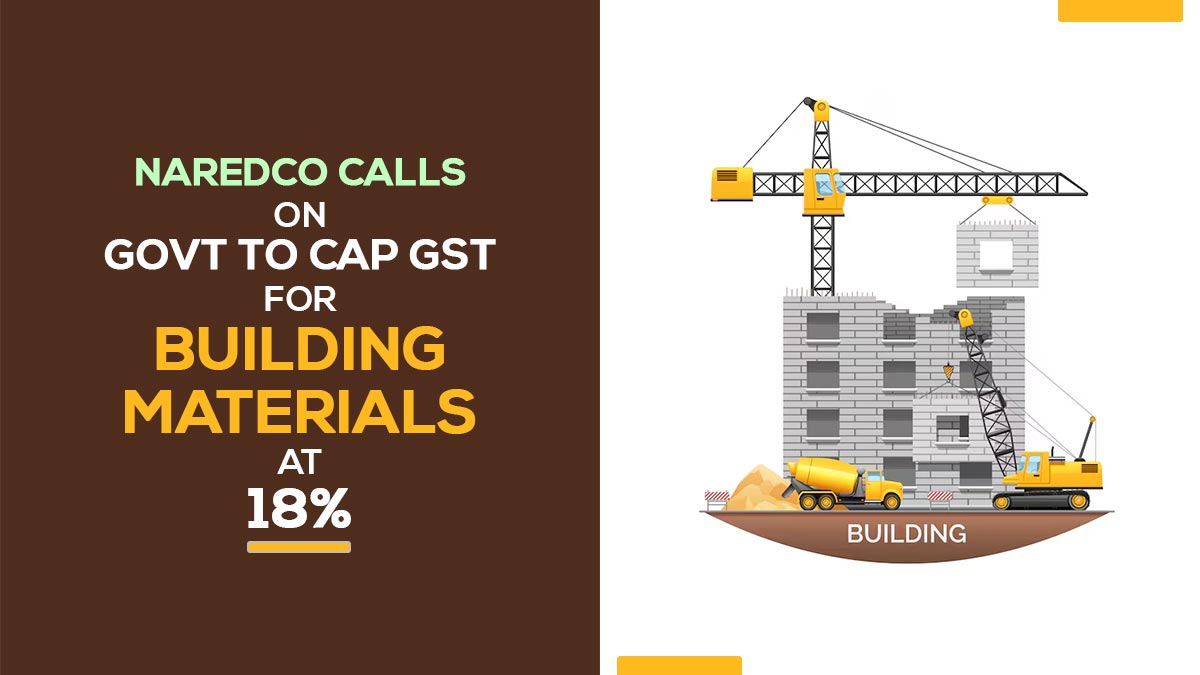
NAREDCO President G. Hari Babu has appealed to the government to cap GST on building materials at 18 per cent. This recommendation aims to streamline tax burdens in the real estate sector and support industry growth.
During the announcement of NAREDCO’s 17th National Convention, the President of NAREDCO emphasised the industry’s ongoing request for the provision of Input Tax Credit (ITC) under the Central Goods and Services Act (CGST).
This request specifically pertains to commercial assets that are constructed for leasing purposes, highlighting the need for supportive tax policies in the real estate sector. We sought the input credit facility for the builders as it is 5% fixed rate, and for cheaper housing, already 1% is there up to 45 lakh. We ask them to surge to 60 lakh.
Concerning the material, some areas are where in which there is a 28% GST applicable, for instance, cement and other materials, so it is not a luxury, and we desire to bring the same to an 18% level. Thus, there shall be no GST on building materials more than 18% which is the demand.
The construction industry and the real estate industry have been impacted by the GST. There is a complex GST on construction services and materials with distinct rates applied based on the type of service, material, and project.
A reduced GST rate of 1 per cent has been applied on the Construction of affordable housing projects, and different construction materials have varying GST rates from 5% to 28%.
Delhi Chief Minister Rekha Gupta, in this curtain raiser, assured the industry members that the government would require 2 years to revamp Delhi and fill the bottleneck of the past 10 years of developmental backlog.
For developing state-of-the-art hospitals, schools, shopping malls, accommodations, and infrastructure, we suggest that industry members and developers come up with the PPP, and the government shall provide the policy and funding support.
The vision of the body has been confirmed by Hari Babu, who quotes that, from retrofitting existing structures to building climate-smart homes, there is a need for the sectors to adopt a forward-thinking approach that does not wait for the norms to act responsibly. The current discussions are not concerned with the vision; they are towards setting actionable goals.
Read Also: GST AAR Levies 18% Tax on Construction & Pump Related Contracts
NAREDCO Delhi president, Harsh Vardhan Bansal, discussed the evolution of the capital’s real estate sector, emphasising the unique challenges and opportunities it faces. He noted that while there is a significant demand for infrastructure in Delhi, there are also considerable land and environmental constraints that must be navigated.
Bansal highlighted that the key issue is not whether growth is possible, but rather how to achieve smarter and more sustainable development in the region.
Bansal cited that the focus on the National Real Estate Development Council (NAREDCO) Delhi is to ensure that housing, commercial development, and urban services all move toward sustainability. With policymakers and urban planners, we are working closely to make things effective that reward eco-friendly practices and penalise shortsighted developments. The future is for those who are looking beyond the next quarter, and our objective is to make a future-ready, climate-conscious capital city.









